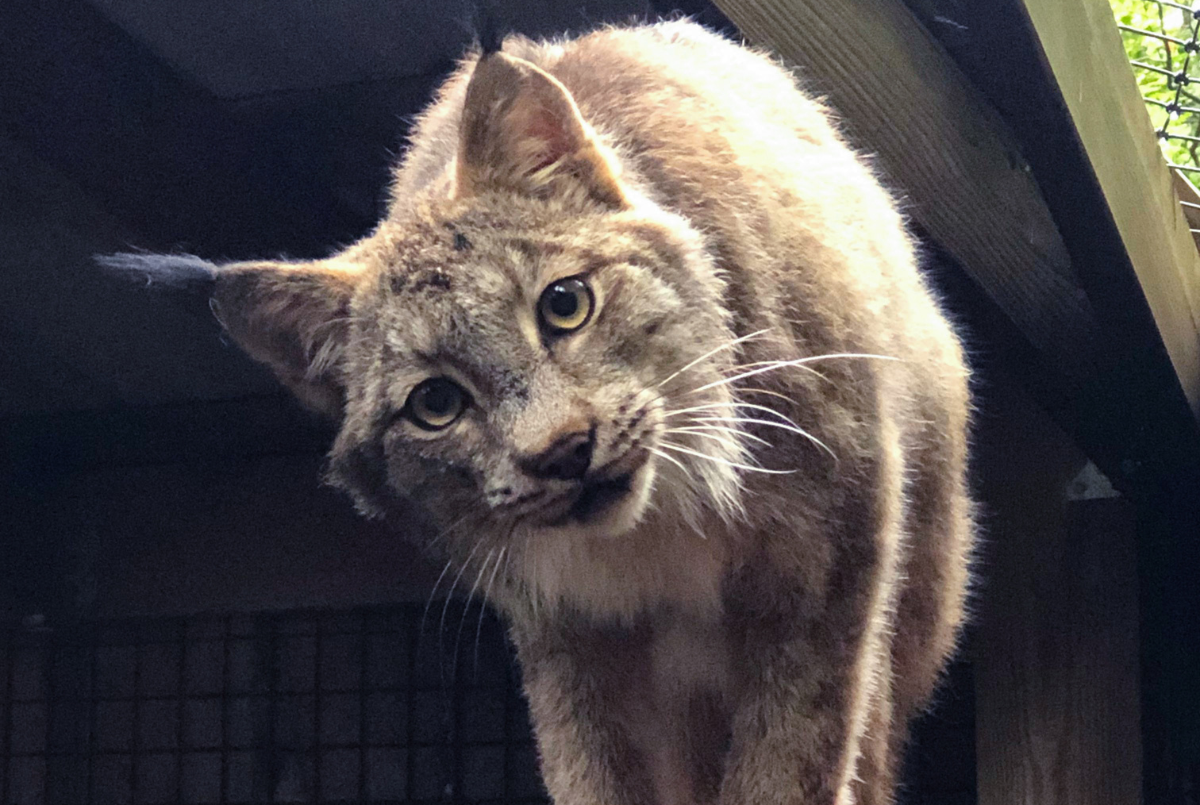Canada Lynx

Basic Information:
Scientific Name: Lynx canadensis
Habitat: Canada Lynx can be found in cold boreal forests within Canada and Alaska.
Diet: Canada Lynx will eat small rodents and birds, but predominately hunt snowshoe hare.
Size: 1.5 to 2 feet tall / 2.5 to 3.5 feet long
Weight: 18 to 24 pounds
Lifespan: 14.8 years according to AZA Species Survival Statistics
Distribution Map:
I.U.C.N. Conservation Status:

What does this mean?
Least Concern – a species determined by the International Union for Conservation of Nature (I.U.C.N.) to be pervasive, abundant, and thriving.
Our Canada Lynxes:
Denali (Female) – Born May 15, 2018
Jack (Male) – Born April 17, 2020
About Canada Lynxes:
These moderately sized cats can be found amongst the snowy, forested areas of northern North America. They have large paws that help them navigate their snowy habitat in search of their primary source of food: snowshoe hares. While their large paws do prevent them from running quickly, these lynxes have become spectacular ambush predators and will often surprise their prey by leaping on them from ledges and trees. In the past, the Canada lynx could be found across the entire northern expanse of the western hemisphere. However, today the lynx is becoming far less common due to human expansion and the destruction of their natural habitat. For instance, snowmobile trails and roads are detrimental because they open up the snowy, forested homes of lynxes to potential predators like cougars and coyotes as well as competition from rival animals such as bobcats.
Did You Know?!
- Canada Lynx have excellent eyesight, and they can spot a mouse at 250 feet! Also, the black tufts of hair at the tops of their ears serve to enhance their already phenomenal hearing.
- Canada Lynx can only sustain populations where there are adequate snowshoe hare populations. Due to the reliance on snowshoe hares for their diet, the population of the Canada lynx is entirely dependent on snowshoe hare populations.
- Canada lynx are very territorial, but a male’s territory and a female’s can sometimes overlap without issue.
- Canada lynxes are good climbers and with their long, powerful legs may jump 4.5 m from a walking or standing start.
- Due to their vast territories, Canada Lynxes are known to walk 2.5 miles per day in their regular travels. However, some Canadian scientists have looked more into this and measured that lynxes can actually travel distances ranging from about 0.5 to around 12 miles in the search of food.

